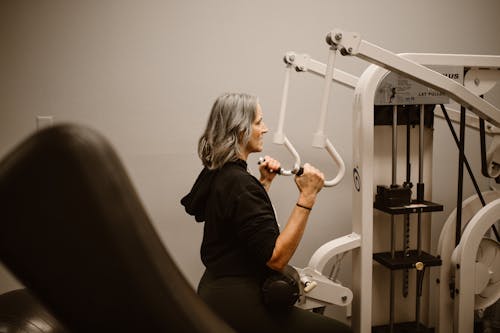Understanding Perimenopause and Navigating the Transition
Perimenopause is a significant phase in a woman's life that occurs before menopause. It is a transitional period during which the ovaries gradually decrease their activity. This article aims to shed light on perimenopause, its symptoms, and how women can navigate this important phase. When discussing the various experiences women's bodies go through, we often think of periods, puberty, and pregnancies. However, there is another important "p-word" that deserves attention: perimenopause.
When discussing the various experiences women's bodies go through, we often think of periods, puberty, and pregnancies. However, there is another important "p-word" that deserves attention: perimenopause.
What is Perimenopause?
Perimenopause is the transitional phase that precedes menopause. It is important to note that perimenopause is not the same as menopause itself. Menopause signifies the end of fertility and occurs when a woman's ovaries, which produce eggs and hormones (estrogen, progesterone, and testosterone), retire. As a result, the ovaries stop releasing eggs and producing hormones, leading to the cessation of menstrual periods. Menopause typically occurs around the age of 51, but the final menstrual period can happen anywhere between the ages of 45 and 55, which is considered within the normal range.
Understanding Perimenopause:
Before reaching menopause, the ovaries provide a notice period during which they gradually decrease their activity. This phase is known as perimenopause and can vary in duration, lasting anywhere from two to ten years. It can be seen as a reverse puberty, as the ovaries slow down instead of starting up. While perimenopause usually begins in the 40s, some women may experience it as early as their mid to late 30s.
During perimenopause, the ovaries have not completely ceased functioning, but they may struggle to release an egg each month (ovulate) or produce sufficient hormones to prompt regular menstrual bleeding. Consequently, irregularities in menstrual patterns may occur. Periods can become heavier, longer, lighter, shorter, more frequent, or less frequent. Perimenopause can be a turbulent phase for some women.
However, for others, their periods may remain unchanged, giving no indication of the transition into perimenopause. It's important to note that having regular periods does not necessarily mean a woman is not experiencing perimenopause. While the ovaries may still produce enough hormones to prompt menstrual bleeding, they may not be producing enough for their other essential functions.
Symptoms of Perimenopause:
Hormones produced by the ovaries have a widespread impact throughout the body and brain. They influence bones, muscles, nerve cells, skin, the immune system, blood vessels, and more. Fluctuations and changes in hormone levels during perimenopause can result in various symptoms, which can vary in severity and duration. Common symptoms include:
- Irregular menstrual cycles
- Hot flashes
- Night sweats
- Mood swings
- Changes in libido
- Vaginal dryness
- Sleep disturbances
- Fatigue
- Memory problems
- Weight gain
- Headaches
- Joint and muscle aches
- Changes in skin and hair
Navigating Perimenopause:
Just as every woman's menstrual cycle and pregnancy experience is unique, perimenopause is also an individual journey. Some women breeze through this phase with minimal disruption, while others may face more challenges. We are all different and experience perimenopause uniquely.
It is crucial for women to be aware of the approaching perimenopause phase and be prepared for it. Tracking menstrual cycles can help detect subtle changes and provide insight into perimenopausal symptoms. Taking care of your body through a balanced diet, regular exercise, sufficient sleep, and effective stress relief is essential to entering this phase of life feeling strong and ready.
If you find yourself experiencing a challenging or stressful perimenopause journey, remember that you don't have to suffer in silence. Talk about it, read about it, and seek help or support from your doctor if needed. Although this life phase may throw you off balance temporarily, you will soon regain your footing, allowing you to navigate perimenopause with confidence and embrace the next chapter of your life.
Discover period underwear designed for comfort and confidence: Shop Period Underwear















